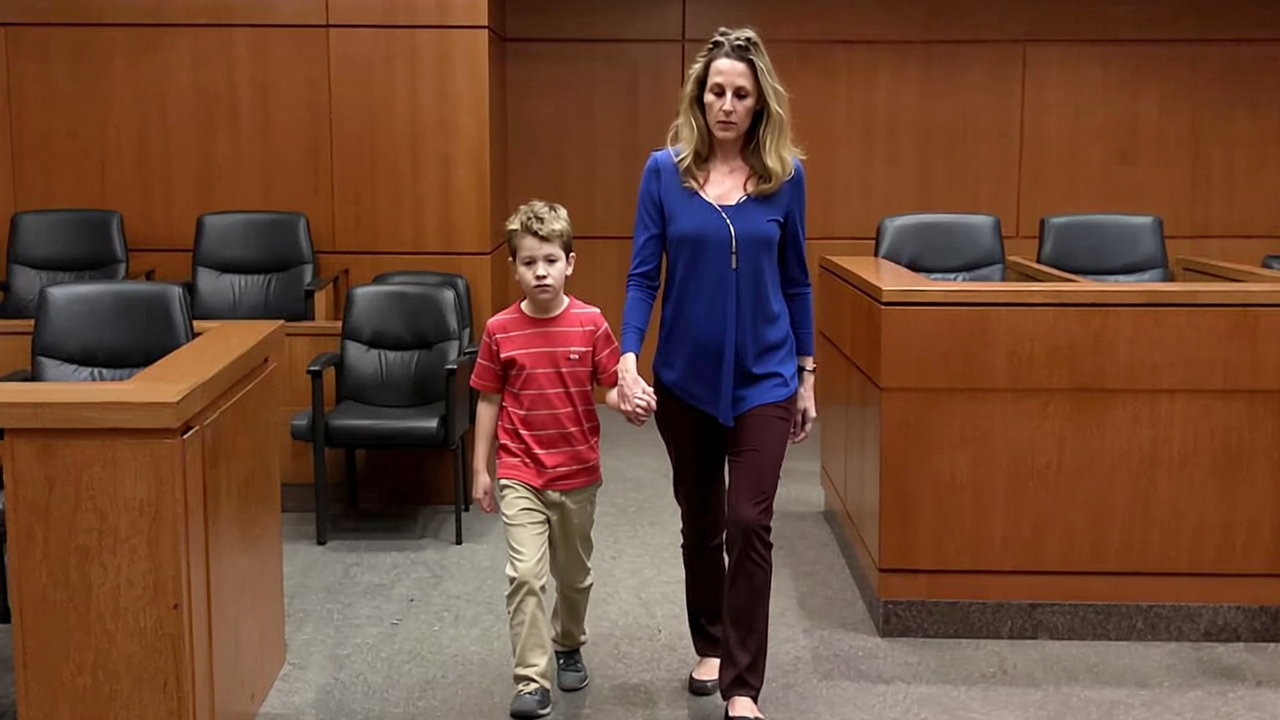I never imagined I’d have to fight for the right to eat a protein bar on an airplane. However, when faced with entitled parents who prioritized their son’s tantrum-free journey over my well-being, I refused to back down. What happened next left the entire row utterly speechless.
My name is Elizabeth, and I genuinely enjoy almost every aspect of my life. I’ve worked incredibly hard to build a thriving career as a marketing consultant, even if it sometimes means living out of a suitcase. Last year alone, I traveled to 14 different cities across the country, helping businesses revolutionize their marketing approaches. Frequent flyer miles are a delightful perk, and hotel breakfast buffets have practically become my second home. “Another trip?” my mother playfully asks as I call her from yet another airport terminal. “You’re like a modern-day nomad!” “It’s worth it,” I consistently assure her. And it truly is. I’m building something meaningful: financial security, professional respect, and the lifestyle I’ve always envisioned for myself. Everything in my life runs seamlessly, except for one persistent complication: Type 1 Diabetes.
I was diagnosed at 12, and it has been my constant companion ever since. Type 1 diabetes occurs because my pancreas fails to produce insulin, the hormone responsible for regulating blood sugar. Without insulin injections and diligent monitoring, my blood sugar can dangerously soar or plummet to critically low levels. Both scenarios could land me in the hospital if I’m not careful. “It’s just part of who you are,” my endocrinologist explained years ago. “Not a limitation, just a consideration.” I have truly lived by those words. I keep glucose tablets in every purse, set reminders for insulin dosages, and always pack extra snacks when I travel. My medical condition does not define me, but it certainly necessitates caution, especially when I’m traveling. Fortunately, most people in my life understand. My boss ensures meetings include regular breaks. My friends don’t mind if I pause for a snack. Even flight attendants usually understand when I explain why I need ginger ale immediately, not in 20 minutes when they finally reach my row. But not everyone comprehends it. Not everyone grasps that what appears to be a casual snack to them can be a vital medical necessity for me. Just like what unfolded on my flight from Chicago to Seattle last month.
I’d been awake since 4:30 a.m. for an early meeting, hurried through O’Hare’s chaotic security line, and barely made it to my boarding group. By the time I sank into my aisle seat, I was already experiencing the familiar lightheadedness that signaled my blood sugar was dropping. I was seated next to a family of three. The mother, likely in her thirties, sat directly opposite me, with her husband across the aisle. Between them was their son, a nine-year-old with a brand-new iPad Pro, wireless headphones that probably cost more than my monthly grocery budget, and a sullen demeanor that suggested he believed the entire flying experience was beneath him. “Mom, I wanted the window,” he whined as they settled in. “Next time, sweetheart. The nice lady at the counter couldn’t change our seats.” She stroked his hair as if he were royalty, albeit slightly inconvenienced. The boy sighed dramatically and kicked the seat in front of him. Not once. Not twice. Repeatedly. The man in front turned around with a scowl, but the mother simply offered an apologetic smile, making no move to stop her son. Live and let live, I reasoned. The flight was only three hours long. I could tolerate a spoiled child for that amount of time. Or so I believed. As the flight attendants concluded their safety demonstration and the plane began to taxi, I felt the familiar dizziness intensify. My hands started trembling slightly. It was a clear warning sign. I reached into my bag for the protein bar I always kept readily available.
Just as I opened it, the woman next to me hissed, “Can’t you? Our son is extremely sensitive.” I paused, a protein bar halfway to my lips, wondering if I had misheard her. But the mom was staring at me with that entitled expression, as if I’d produced something illegal rather than a perfectly normal snack. “I’m sorry?” I asked. “It smells. The crinkling. The chewing.” She gestured vaguely. “It throws him off. Our son has… sensitivities.” I glanced at the young boy, who was already whining about his seat belt and kicking the tray in front of him. He appeared absolutely fine. Not a child with a disability, but simply spoiled and loud. To be honest, he didn’t even seem to notice the protein bar. “I understand, but I need to—” “We’d really appreciate it,” she interrupted me. “It’s just a short flight.” I looked down at my shaking hands. The rational part of me wanted to explain my medical condition, but the people-pleasing side prevailed. I thought, whatever, I’ll just wait for the snack cart. I put the bar away and tried to power through, quietly checking my CGM monitor. The numbers were dropping faster than I wanted.
The drink cart appeared about 40 minutes into the flight. I breathed a sigh of relief as I watched it make its way down the aisle. When the flight attendant approached our row, I smiled and asked, “Can I get a Coke and the protein snack box, please?” Before I could finish, the dad across the aisle leaned over and interrupted, “No food or drinks for this row, thanks.” The flight attendant looked utterly confused. “Sir?” “Our son,” he said with a pointed glance at the boy, who was now completely engrossed in his iPad game. “He gets upset when others eat around him.” What? I thought. Is he serious? I was about to protest when the mom chimed in. “It’s just a few hours. Surely you can wait.” The flight attendant moved on with the cart, clearly uncomfortable but unwilling to get involved in a passenger dispute. When I reached up to press the call button, the boy’s dad leaned across the aisle again. “Uhh, excuse me? Our son does not handle other people eating near him. It sets him off. Maybe you could be a decent human for one flight and just skip the snack, yeah?” I looked from him to his wife to their son, who hadn’t even glanced up from his game. My watch chimed with a blood sugar alert. I needed sugar immediately. It took a few seconds for the flight attendant to return. Again, the boy’s mother interrupted. “She will have nothing. Our son has sensory triggers,” she informed the flight attendant. “When he sees food, he loses his cool. You would not believe the outbursts. So, unless you want a scream during the flight, perhaps don’t serve her?” At that moment, I had truly had enough.
I turned to the attendant, loud enough for half the row to hear, and said, “Hi. I have Type 1 Diabetes. If I don’t eat something now, I could pass out or end up in the hospital. So yes, I will be eating. Thanks.” Several heads turned. Passengers nearby looked up. One older woman across the aisle gasped and stared at the parents, as if they had uttered something truly terrible. The flight attendant’s tone shifted instantaneously. “Of course, madam. I’ll get it right away.” “God, it’s always something with people,” said the mother, rolling her eyes. “My son has needs, too! He dislikes looking at food when he is unable to eat it. It’s called empathy.” “Your son has an iPad, headphones, and hasn’t looked up once,” I countered. “And he’s eating Skittles right now.” I nodded at the colorful candy scattered around his tray. “That’s different,” she complained. I smiled pleasantly as I took the food box and drink from the attendant and asked, “You know what else it’s called? Managing your own child. Not the entire cabin.” I wolfed down my crackers and cheese, chugged my soda, and felt my blood sugar begin to stabilize. The relief was immediate, both physically and emotionally.
Five minutes later, as soon as I opened my laptop, the mother leaned in again. “I feel a calling to educate you about my son’s condition,” she replied with a tight smile. I did not even flinch. “Lady,” I stated clearly, “I don’t care. I’ll manage my T1D the way I see fit, and you may manage your tantrum-prone prince as you see fit. I’m not risking my health because you can’t manage a tantrum. Next time, book the entire row. Or better yet, fly private.” The silence that followed was utterly worth it. The final two hours passed without a single incident. The young boy never looked up from his game or seemed to notice anyone eating. As for the parents? They didn’t utter another word to me.
That day on the plane showed me that advocating for your health isn’t disrespectful. It is absolutely necessary. The kindest thing you can do for yourself is to resist others’ attempts to diminish your legitimate needs. My ailment isn’t visible, but it is very real, and I have every right to manage it appropriately. Nobody’s comfort is ever more important than another’s health. That’s a lesson worth remembering, whether you’re at 30,000 feet or firmly on solid ground.
Do you have any experiences where you had to stand up for your own needs in a public setting?




